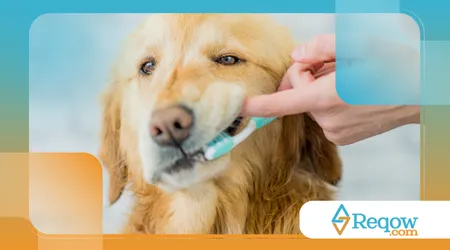Practical tips to save money without compromising your pet's health

Amidst the hectic routine and financial challenges, save money without compromising your pet's health is a real concern for many tutors.
Advertisements
Our dedication to our four-legged friends is undeniable, but managing a family budget can become a juggling act, especially when unexpected events arise.
The good news is that with planning and some smart strategies, it's entirely possible to keep your pet happy, healthy, and well-cared for without breaking the bank.
After all, caring for those we love responsibly is a priority, and that includes the health of our pets.
The Secret is in the Planning
The basis for any efficient economy is the planningIt's not about cutting essential expenses, but rather optimizing available resources.
Advertisements
Just as we plan our own expenses, the same should be done with our pet's.
Ideally, you should create a monthly or annual budget, listing fixed expenses such as food, litter, and ongoing medications, as well as a reserve for emergencies.
This proactive approach prevents financial panic in unexpected situations, such as an emergency visit to the vet.
Smart Food: Quality and Economy
Nutrition is the cornerstone of your pet's health.
A high-quality diet prevents disease, which, in the long run, can lead to significant savings on veterinary care.
Opt for premium or super-premium foods, which offer greater nutritional density, allowing you to serve smaller portions.
Read more: First-Time Pet Owners: 10 Common Mistakes and How to Avoid Them
Another smart strategy is to look for larger packages, which generally have a lower cost per kilo.
Buying in bulk with other pet owners is also an excellent idea for those who have more than one pet.
A homemade diet can be a viable option, but requires guidance from a veterinarian or animal scientist to ensure that all necessary nutrients are present and in adequate proportions.
Preventive Health: The Best Investment
Prevention is, without a doubt, the best investment for your health and your wallet.
Up-to-date vaccinations, regular deworming, and annual checkups are the most effective way to prevent serious and costly diseases.
Have you ever stopped to think that a simple rabies vaccine, which costs on average 50 to 100 reais, prevents a fatal and expensive disease to treat, if treatment is available?
Preventative care, even if the animal appears well, can identify problems at an early stage, making treatment simpler, cheaper, and with a higher success rate.

Bathing and Grooming at Home: Tips and Care
Bathing and grooming services at pet shops can represent a considerable portion of your monthly budget.
Learning how to clean your pet at home, with the right tools and the correct technique, is an effective way to save money without compromising your pet's health.
For dogs, for example, bathing can be done every two weeks with specific shampoos.
Look how interesting: How to Cope with Grief After the Loss of a Pet: A Guide for Pet Owners
Hygienic grooming, which includes trimming the fur on the paws, belly, and intimate area, can be easily learned with online tutorials.
For cats, daily brushing is essential to prevent knots and hairballs.
Toys and Entertainment: Creativity at Playtime
You don't need to spend tons of money on expensive toys to keep your pet entertained.
Creativity can often be your greatest ally. A clean, empty plastic bottle with a few pellets of dog food inside becomes a stimulating "hunting treat."
Cardboard boxes make fun hiding places for cats. The important thing is the interaction and mental stimulation, not the monetary value of the object.
Making toys at home is a great way to save money without compromising your pet's health.
Adopt Oral Hygiene at Home
Tartar and gingivitis are common problems in pets, and treatment can be expensive and even involve surgical procedures.
Getting your pet used to daily brushing from a young age is the best prevention. Use a toothbrush and toothpaste specifically designed for animals.
Regular brushing, even if it takes a while to become accepted, is crucial. Think of tartar as rust on a car.
If you take care of the cleaning, rust won't appear. If you ignore it, the damage can be extensive and the repair expensive.
Generic and Alternative Medicines
Talk to your veterinarian about the possibility of using generic or similar medications, which are often just as effective as brand-name medications but at a much lower cost.
In Brazil, as in human medicine, ANVISA (National Health Surveillance Agency) guarantees the quality and effectiveness of these medicines.
Find out more: Pets that eat too fast: real risks and how to avoid this dangerous behavior
The difference is only in the brand, not in the active ingredient.
Another tip is to look for veterinary compounding pharmacies, which can produce medications in the ideal dosage and format for your pet, avoiding waste and optimizing costs.

The Power of Discounts and Loyalty Programs
Many stores and pet shops offer loyalty programs, discount coupons, and special promotions.
Sign up for newsletters, follow us on social media, and keep an eye out for opportunities.
For example, buying food during promotions or subscribing to recurring purchase services can guarantee a good discount on the final price.
Price research, both in physical stores and online, is essential.
A 2024 study by pet product e-commerce platform Petlove, for example, revealed that customers who use the recurring purchase service save, on average, 15% on their monthly spending on essential products.
Pet Health Insurance: Assess the Need
Just like health insurance for humans, there are health plans for pets that can be a way to save money without compromising your pet's health in case of emergencies or chronic illnesses.
The monthly cost may vary, but in cases of complex surgeries or treatments, insurance may cover a significant portion of the expenses.
The decision to purchase insurance should be carefully considered, taking into account your pet's age, breed, and health history.
Car Travel with Your Pet: Safety First
Instead of spending money on hotel accommodations or daycare, why not take your pet on your road trips?
With the right safety equipment, such as carriers or dedicated seat belts, travel can be safe and fun for everyone.
It's a way to save on accommodation and still spend more quality time with your four-legged friend.
A Golden Retriever, for example, which usually costs R$100.00 per day in pet hotels, could generate savings of R$700.00 on a one-week trip.
Caring with Consciousness is the Key
Save money without compromising your pet's health is an achievable goal. The secret lies in planning, prevention, and adopting smart habits.
Simple actions, like buying larger packages of pet food, cleaning your home, and keeping an eye out for promotions, can make a big difference to your budget.
The love and care we give our pets doesn't have to be expensive; it needs to be thoughtful. And, at the end of the day, isn't it our pet's health and happiness that truly matter?
Frequently Asked Questions
1. Where can I find reliable tutorials for home bathing and grooming?
Platforms like YouTube and blogs specializing in pet care offer a variety of tutorials from professionals.
Be sure to choose videos from trusted sources, such as veterinarians or experienced groomers.
2. Is a homemade diet really cheaper?
It can be, but it requires careful planning and expert guidance. The cost of a homemade diet will depend on the ingredients chosen and their availability.
3. How do I choose a health plan for my pet?
Research and compare different plans. Check coverage, waiting periods, accredited network, and cost-benefit. The ideal choice will depend on your pet's specific needs.
4. How do I teach my pet to accept having its teeth brushed?
Start slowly, offering pet-safe toothpaste as a treat. Then, move on to massaging the gums with your fingers, and finally, using the toothbrush. Be patient and reward good behavior.
5. Can I give my pet human food to save on food?
Not recommended. Human foods can be toxic to pets and don't provide all the necessary nutrients.
Always use quality food or a balanced homemade diet, under professional guidance.
++ Learn how to care for your pet without breaking the bank.
